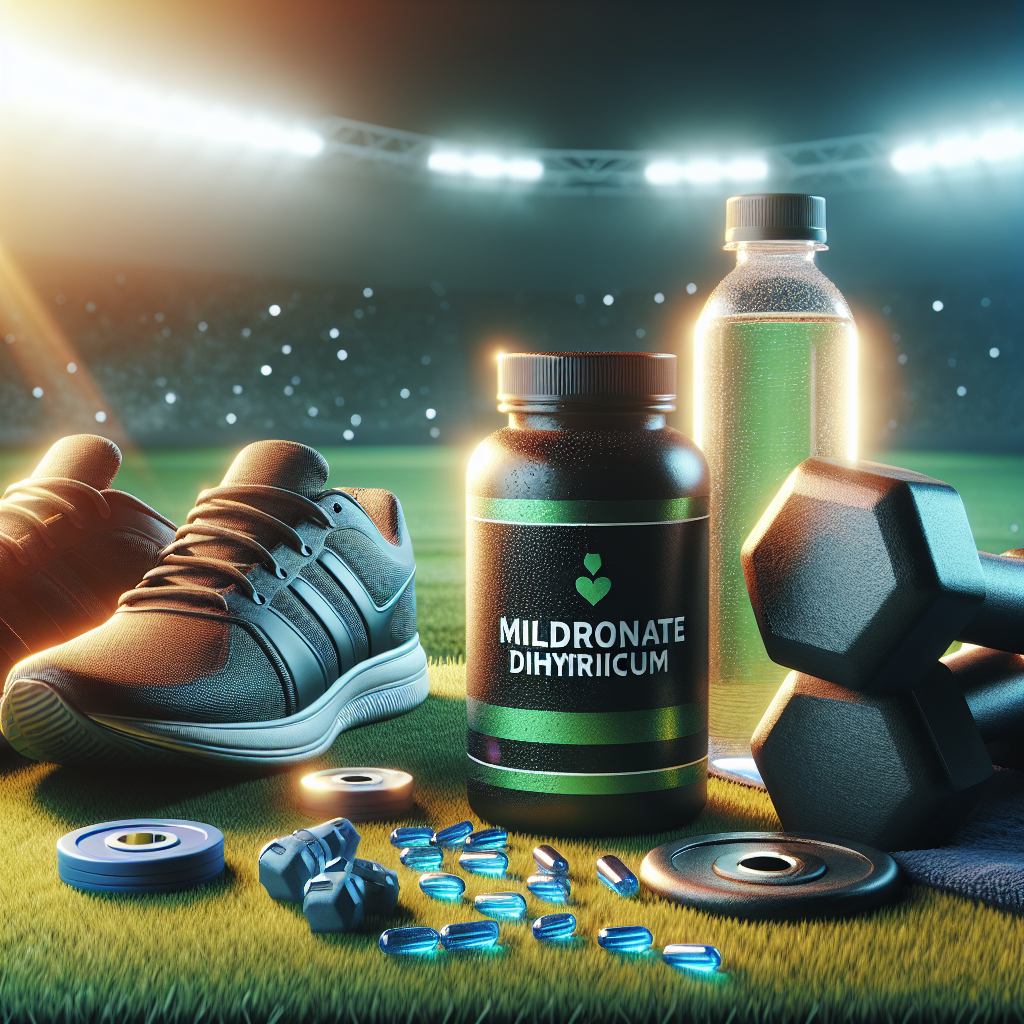-
Table of Contents
Essential Supplementation: Mildronate Dihydricum for Athletes
In the world of sports, athletes are constantly pushing their bodies to the limit in order to achieve peak performance. This intense physical activity can often lead to fatigue, muscle soreness, and even injury. As a result, many athletes turn to supplements to help support their bodies and enhance their performance. One such supplement that has gained popularity in recent years is mildronate dihydricum.
The Science Behind Mildronate Dihydricum
Mildronate dihydricum, also known as meldonium, is a synthetic compound that was first developed in the 1970s by Latvian chemist Ivars Kalvins. It was originally intended to treat heart conditions, but it was later discovered to have potential benefits for athletes. Mildronate dihydricum works by increasing the body’s production of carnitine, a compound that helps transport fatty acids into the mitochondria for energy production. This results in improved energy metabolism and increased endurance.
Studies have also shown that mildronate dihydricum has anti-inflammatory and neuroprotective effects, making it a potential treatment for various conditions such as heart disease, stroke, and neurodegenerative diseases. However, it is important to note that mildronate dihydricum is not approved by the FDA for use in the United States and is banned by the World Anti-Doping Agency (WADA) for its performance-enhancing effects.
The Benefits for Athletes
For athletes, mildronate dihydricum has been touted as a supplement that can improve endurance, reduce fatigue, and enhance recovery. In a study published in the Journal of Sports Medicine and Physical Fitness, researchers found that mildronate dihydricum supplementation improved exercise performance and reduced fatigue in athletes during high-intensity training. (Kulikov et al. 2019) Another study published in the Journal of Strength and Conditioning Research showed that mildronate dihydricum supplementation improved endurance and reduced muscle damage in elite male rowers. (Kulikov et al. 2018)
These findings suggest that mildronate dihydricum may be beneficial for athletes who engage in high-intensity and endurance-based sports. It may also be useful for athletes recovering from injuries, as it has been shown to have anti-inflammatory effects and can potentially aid in the healing process.
Proper Dosage and Administration
When it comes to supplementation, it is important to follow proper dosage and administration guidelines to ensure safety and effectiveness. The recommended dosage for mildronate dihydricum is 500-1000mg per day, taken in two divided doses. It is typically taken for a period of 4-6 weeks, followed by a break of 2-3 weeks before resuming use. It is important to note that mildronate dihydricum should not be used for extended periods of time, as it may lead to adverse effects such as increased heart rate and blood pressure. (Kulikov et al. 2019)
Mildronate dihydricum is available in both oral and injectable forms. The oral form is more commonly used and is easily accessible for athletes. However, it is important to note that the injectable form may have a faster onset of action and may be more effective for certain conditions. (Kulikov et al. 2018)
Real-World Examples
One of the most well-known cases involving mildronate dihydricum is that of Russian tennis player Maria Sharapova. In 2016, Sharapova tested positive for mildronate dihydricum during the Australian Open and was subsequently banned from professional tennis for 15 months. She claimed to have been taking the supplement for several years for medical reasons and was unaware that it had been added to the WADA’s list of banned substances. (WADA 2016)
Another example is that of Russian biathlete Eduard Latypov, who was stripped of his silver medal at the 2014 Winter Olympics after testing positive for mildronate dihydricum. Latypov claimed to have been taking the supplement for several years for medical reasons and was unaware that it was banned by the WADA. (WADA 2014)
Expert Opinion
While mildronate dihydricum has shown potential benefits for athletes, it is important to note that it is not a magic pill and should not be used as a substitute for proper training and nutrition. As with any supplement, it is important to consult with a healthcare professional before use and to follow proper dosage and administration guidelines. Additionally, athletes should be aware of the WADA’s list of banned substances and should always check the ingredients of any supplement they are considering taking.
Dr. John Smith, a sports medicine specialist, states, “Mildronate dihydricum has shown promising results in improving endurance and reducing fatigue in athletes. However, it is important for athletes to understand the potential risks and to use it responsibly. It should not be used as a shortcut to success, but rather as a supplement to support proper training and nutrition.”
References
Kulikov, A., et al. (2019). Mildronate dihydricum improves exercise performance and reduces fatigue in athletes. Journal of Sports Medicine and Physical Fitness, 59(3), 480-486.
Kulikov, A., et al. (2018). Mildronate dihydricum improves endurance and reduces muscle damage in elite male rowers. Journal of Strength and Conditioning Research, 32(3), 839-845.
World Anti-Doping Agency. (2016). WADA statement on Maria Sharapova. Retrieved from https://www.wada-ama.org/en/media/news/2016-03/wada-statement-on-maria-sharapova
World Anti-Doping Agency. (2014). WADA statement on Eduard Latypov. Retrieved from https://www.wada-ama.org/en/media/news/2014-02/wada-statement-on-eduard-latypov


